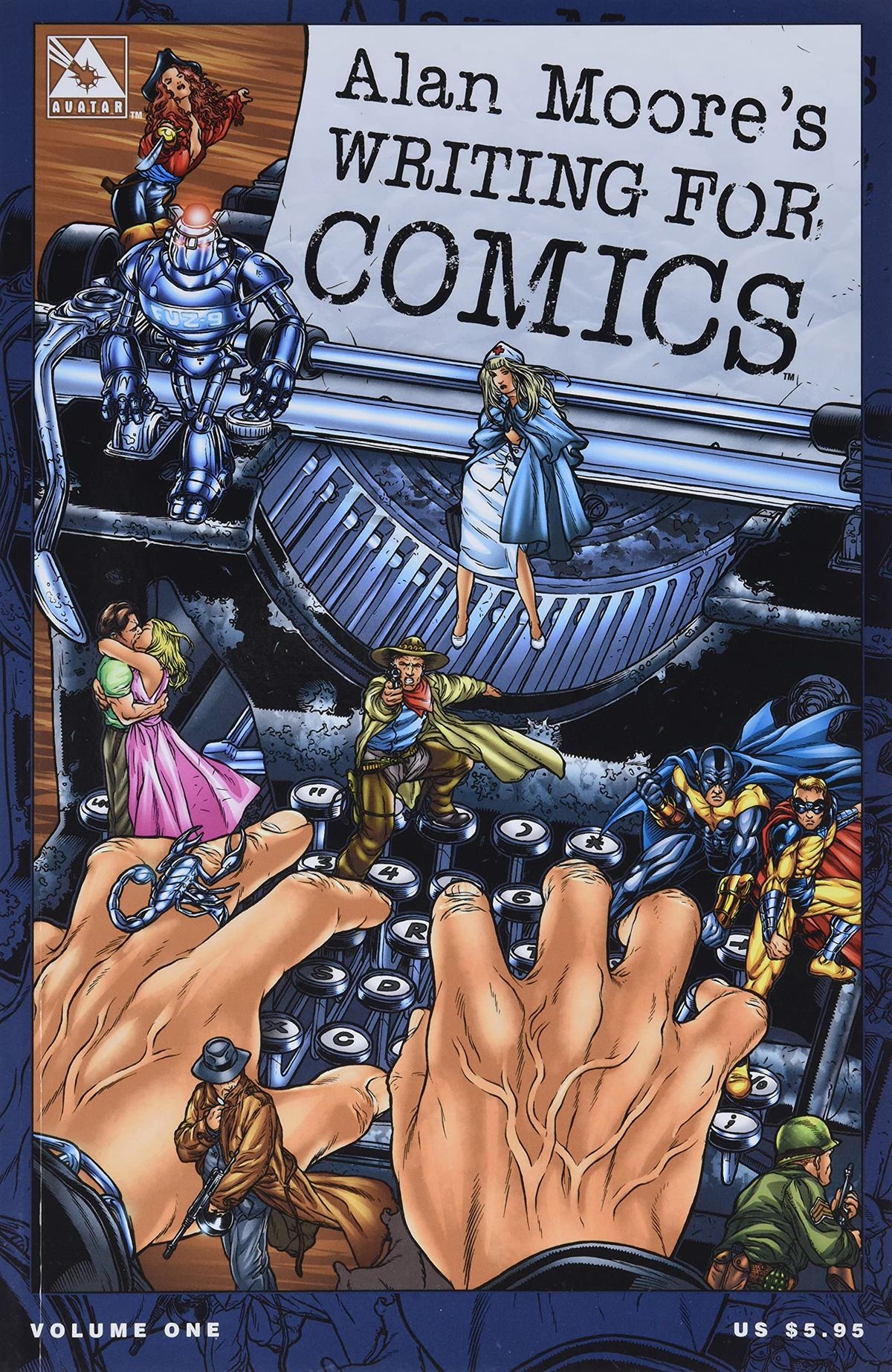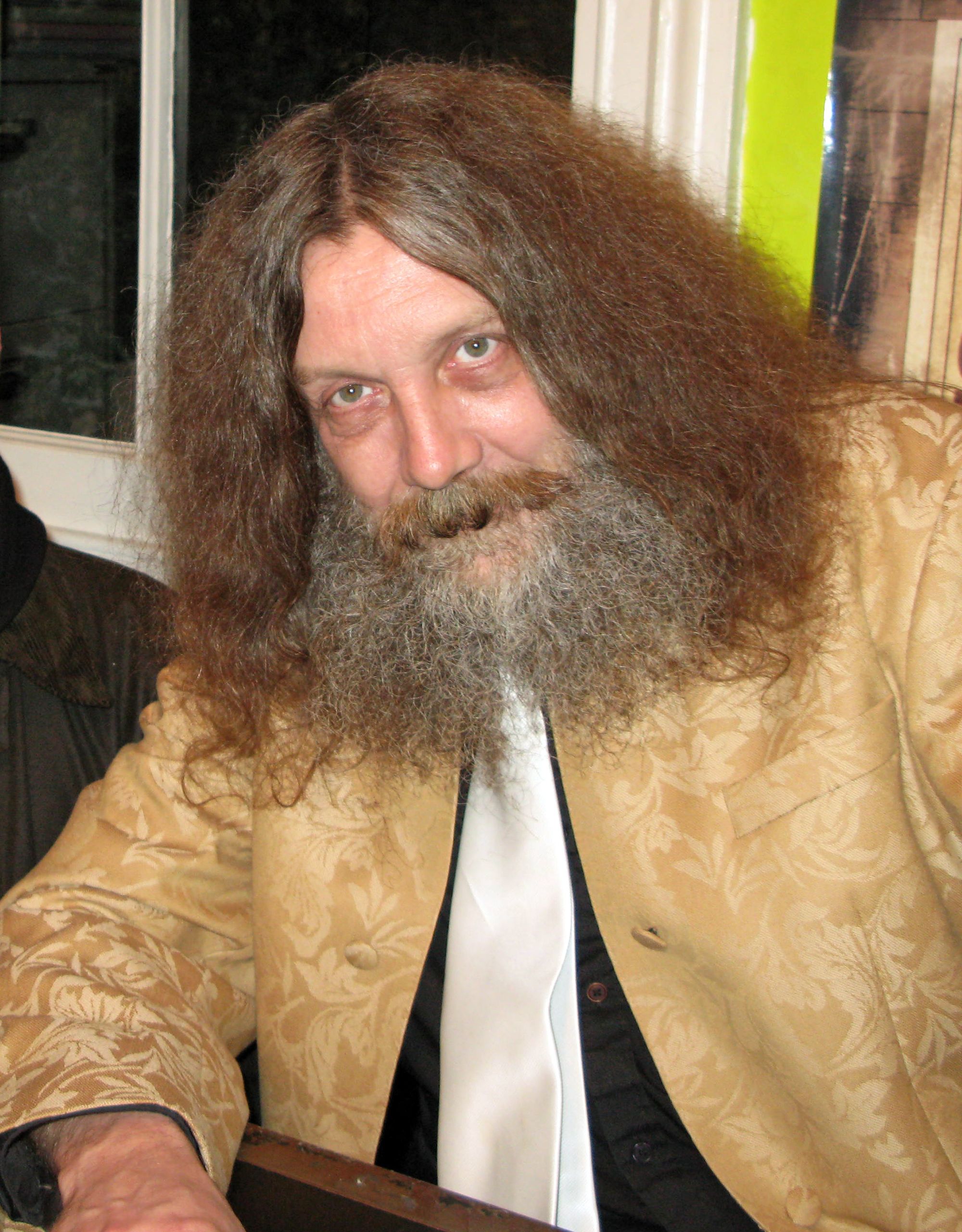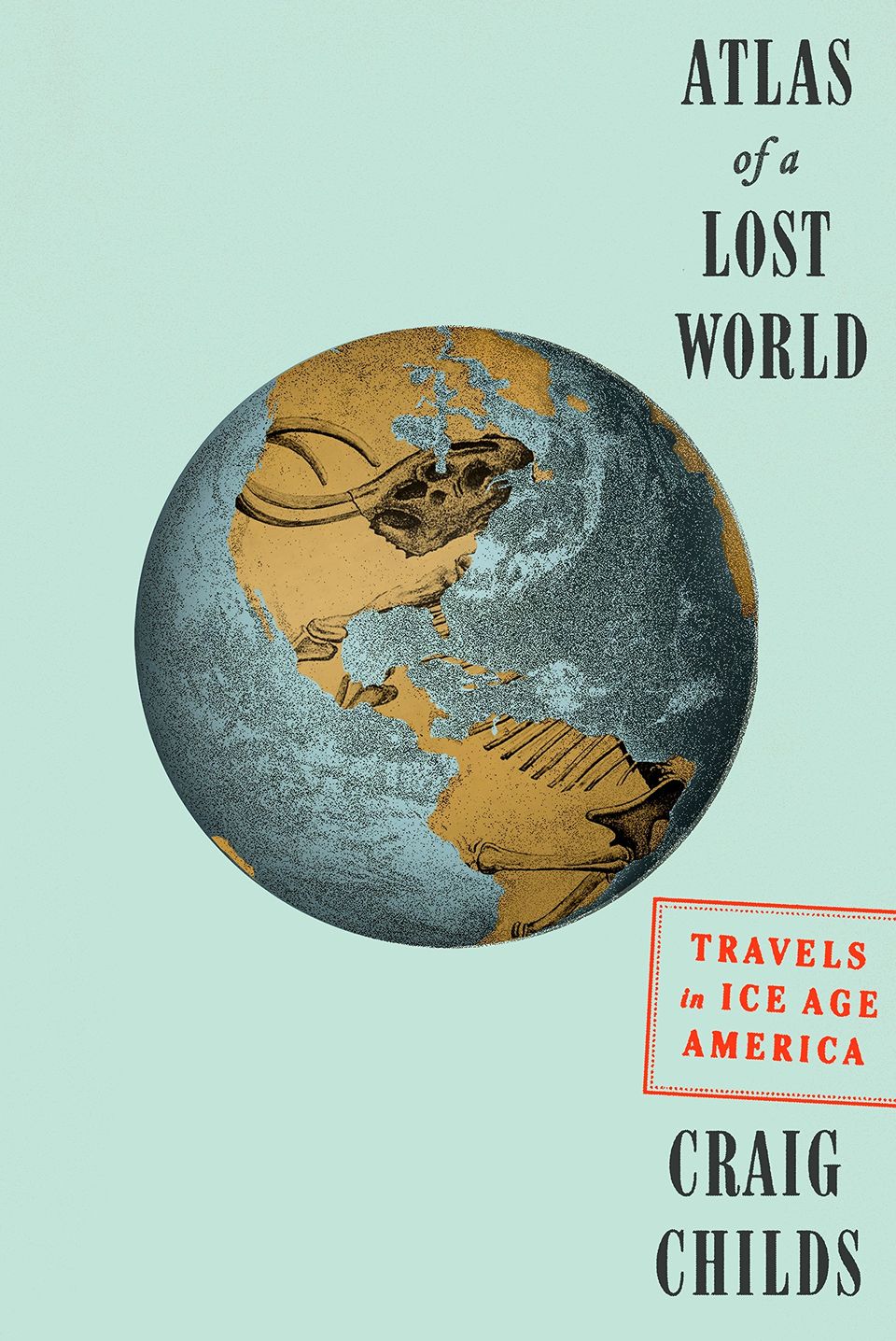Writing for Comics by Alan Moore
Notes, quotes, and a review of Writing for Comics by Alan Moore. The book is just 48 pages long and packed with instruction and useful advice. Highly recommend it.

Title: Writing for Comics
Author: Alan Moore
Pages: 48
Rating: 10/10
Genre: Writing, Comics
Alan Moore is probably the most celebrated comic book author of the 20th century. He's written some of my favorite stories:
- Batman: The Killing Joke
- "Whatever Happened to the Man of Tomorrow?" (Superman #423 & Action Comics #583)
- Watchmen – The only comic on Time's List of the 100 Best Novels
- For the Man Who Has Everything (Superman Annual #11, 1985) – Easily my favorite Superman comic.
Besides the other comics he's written — including Swamp Thing, V for Vendetta, and From Hell – he's also written a behemoth of a novel, Jerusalem. Moore is a modern-day Renaissance Man, and it's to our benefit he's written such a concise booklet about writing for comics — written generally enough that it's advice is applicable to writing for novels, movies, or video games.
Notes
- Knowing what to include & exclude is something you learn through experience.
- You should pay special attention to world-building.
- Stories should imply offscreen events. Don't hammer readers with exposition, overt dialogue, description, or other crass telling. That is: show, don't tell.
- Small details matter. You'll know, even if others don't.
- To write people well, interact with them more. Shyness is a barrier to success.
- Study nuances. When writing comics, you're writing people; when drawing comics, you're drawing people. Sure, there are going to be some exaggerated bits, but it's all people at the end of the day.
- Plot is the vehicle through which the idea is delivered. A plot without an idea driving it is a wreck. Give a lot of thought to the plot, and the idea behind it. This was at odds with On Directing Film by David Mamet, though I grant that Mamet is talking about film and not comics. Still, he and Moore have very strong ideas on their craft (for example, Moore doesn't like the term "graphic novels", which is why I've opted to call all of his works comics).
- Don't ruminate and don't think too far ahead. Make sure to live in the moment, so you don't regret it later.
- First impressions last. The cover, first page, first contact, first look, etc. are imperative to get right.
Quotes
"But there’s no reason why an enterprising mind shouldn’t find a way to adapt the basics of the device to a sequence of words and pictures."
"Take risks. Fear nothing, especially failure. As a living and progressive process, your writing should be constantly looking for the next high wind swept precipice to throw itself over. And if your first glimpse of the drop beneath turns your stomach with its immensity, then so much the better. The higher the drop, the longer you have to… I don’t know. Knit a helicopter or something… Before you hit bottom."
"Immerse yourself in the least desirable element and swim."
This is something that comes up in any book like this because, obviously, it's something everyone deals with. You can get drowned by spending too much time on the irrelevant parts of a project. Paul Graham has something similar in his essay Good and Bad Procrastination. When talking about people procrastinating the important things with small things that have no bearing on the project:
What's "small stuff?" Roughly, work that has zero chance of being mentioned in your obituary. It's hard to say at the time what will turn out to be your best work (will it be your magnum opus on Sumerian temple architecture, or the detective thriller you wrote under a pseudonym?), but there's a whole class of tasks you can safely rule out: shaving, doing your laundry, cleaning the house, writing thank-you notes—anything that might be called an errand.
Not quite the same thing, but I thought it fit.
"Don’t be cool. Like everything."
This quote was related when he wrote about his dislike of people who try to act above something or, more crassly, that some things — art, literature, music, film, etc. — is beneath them. You could take it to mean that you shouldn't have "guilty pleasures"; just like the thing.



